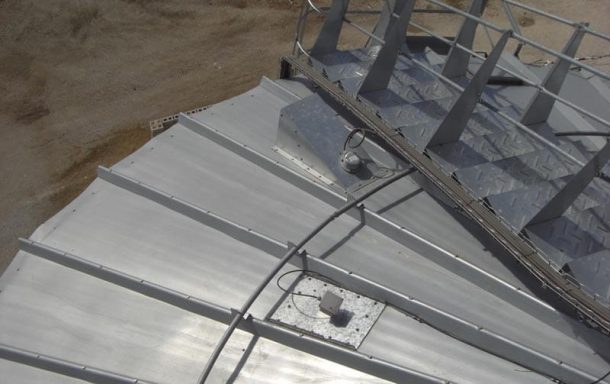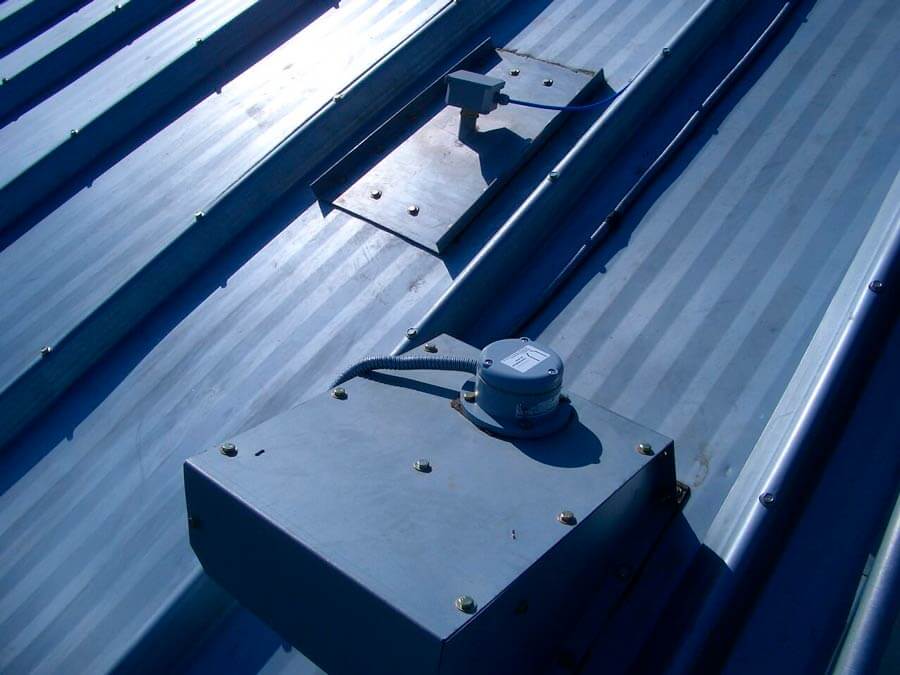Silos are made of sheet metal, with a galvanised coating. And although it may seem otherwise, the increase in temperature of the sheet due to the heat of the sun is very superficial and does not affect the grain mass.
The temperature variation that does affect the grain mass is caused by the fermentation processes, that is, when there is a moisture focus that begins to deteriorate the grain, and one of the consequences is the temperature increase.
Therefore, it becomes crucial to employ tools that enable the detection of moisture sources by effectively measuring the temperature within silos and promptly triggering an alarm in the event of any temperature rise at any point. Such an increase in temperature acts as an early warning sign, indicating the occurrence of a potentially critical situation within the silo.
Silos Spain offers thermometry systems that allow the measurement, monitoring and control of the temperature and humidity of the cereal inside the silo. This system includes the supports for the different probes adapted to the structure of our roofs.

Thermometry system
Once the moisture has been detected, it is necessary to act, either by ventilating, that is to say, putting air at medium pressure inside the silo; or by recirculating and transferring the grain to another place, which is much safer.
Temperature control is a crucial process for ensuring the future preservation of grain, given its typically higher value compared to the silo it is stored in. Implementing an advanced thermometry system is just one aspect that can significantly contribute to this preservation effort.



